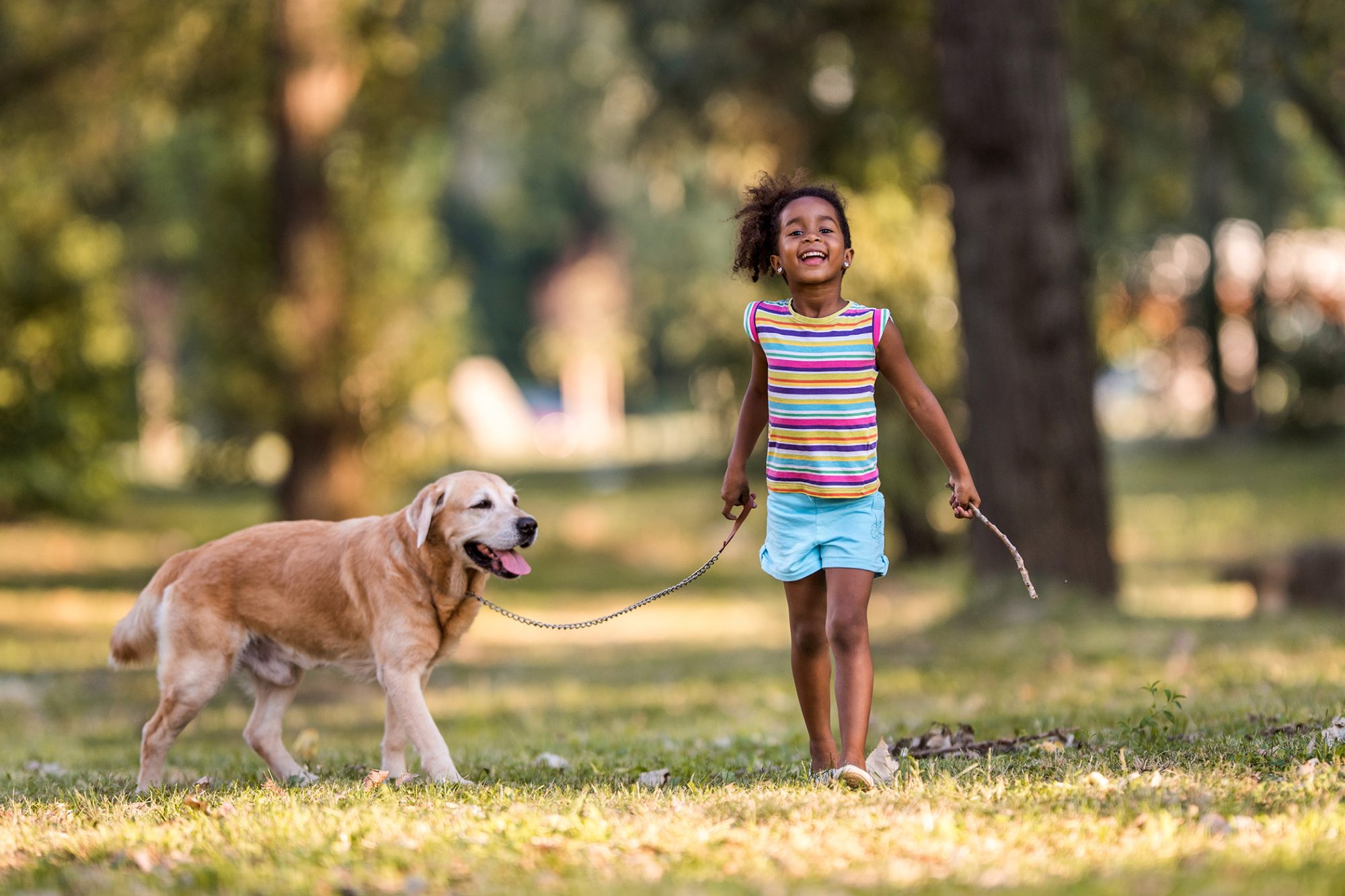
When selecting a dog breed for your family, consider size, temperament, as well as lifestyle. A bulldog, a large breed of dog, is best for those who live in small apartments or are limited on space. Bulldogs are a low-energy breed that isn't fussy about living arrangements. Bulldogs are also excellent candidates for family life.
Labradors
Labradors make the perfect dog for families. They are great with children and can get along well with other pets. They are smart and lively, making them great for families with kids of all ages. You might find that young labs can become too much for small children.
It is important to remember that Labradors are susceptible to many skin conditions. They are susceptible to allergies, parasites, as well as grass seeds which can irritate their ears. Otitis is a painful condition that causes severe itching.
Boxers
Boxers are energetic and great for families with active children. However, they should be kept away from small children, especially babies. Boxers can be frightening to small children so they should not be allowed near them. If you select a well-trained Boxer, you can expect it will be a great addition for your family.

Boxers are great family pets because they are smart and get along well with children. They love playing outside and being playful. However, they can be quite clumsy and should not be left to their own devices with young children. Still, because of their intelligence, they get along well with babies and kids.
Cavalier King Charles Spaniels
Cavaliers can be happy and affectionate animals that are kind and loving. They are perfect for families with young children. They are friendly with other dogs, although they may be a little nervous around larger dogs. It is best to let them play with other dogs when they're ready to do so.
They are gentle and intelligent. They get along well both with other dogs as well as children. They are playful and cuddly so they make a great pet for children of all ages. They are small in size and easy to maintain due to their soft coats. They are also a good choice if you live in an apartment.
English Springer Spaniels
English Springer Spaniels are friendly, affectionate dogs that make great family pets. They are well-known for their ability to "spring" at a game and beautiful appearance. They can be a good addition to any household, but require an active lifestyle.
They need to be exercised and have plenty of space. Their high-spirited and driven nature makes them great friends for children. Because their breed was designed to hunt with humans, they are a pleasure to be around. This breed is highly intelligent and easily trained.
Golden Retrievers

Due to their gentle nature and friendliness, golden retrievers make wonderful family pets. They love playing with children, and they are not rough. When they play with young children, they should be closely supervised. They are easy to train, and they are good with children. They are gentle with children, and will not become aggressive unless they are provoked.
A golden retriever makes a wonderful family pet. However, they should be introduced to your child gradually. Spending more time together will strengthen the bond. The baby will soon be recognized by the dog as being gentle and protective. This is good for both the child, and the dog. Golden retrievers are also excellent cuddlers. Many will sleep next to a baby once they have formed a bond.
Poodles
Poodles are an ideal choice for families with children, according to a survey of 34 people. This breed is well-suited to children, and can be taught to behave in different ways. Dogs need to be exercised regularly because they are active and playful. A Standard Poodle needs one hour of exercise each day, while Miniature Poodles need at least 30 minutes.
They are gentle and easy to work with. A toy puppy may be too sensitive for rough play. A standard dog will need patience and training. When playing with the dog, children should be supervised and parents should set rules.
FAQ
There are three things you should consider before buying a cat.
Before buying a cat, make sure you have considered these questions:
-
Do you have any questions about the health of your cat?
-
Will my cat eat all the food I have prepared?
-
Is it because I am a lover of cats or do you just want a pet to play with?
What are some signs that my dog might be sick?
A variety of symptoms may indicate that your dog has a serious illness. You may notice the following symptoms:
-
Vomiting
-
Diarrhea
-
Lethargy
-
Fever
-
Weight loss
-
Reduced appetite
-
Coughing
-
Difficulty breathing
-
Bleeding from below the nose
-
Urine or stool contaminated with blood
These are just a few examples. Your vet can tell you which signs to watch for.
How long should a dog stay indoors?
Dogs are naturally curious. Dogs need an outlet to express their curiosity. If they don't have a place to go, they can be destructive. This can lead directly to destruction of property or injury to people.
It is important that dogs are kept on a lead when they go outside. Dogs should be kept on a leash when they are outside to prevent them from getting into trouble and allow them to explore the environment safely.
He will be bored and uninterested if you keep him indoors all day. He will chew furniture and other items. His nails will grow too long, and he could develop health issues as well.
The best way to prevent these negative consequences is to let your dog run free at least once daily. You can take your dog for a walk in the neighborhood, ride in the car or to the park.
This will allow him to burn energy and give him something useful.
What are the responsibilities that pet owners have?
A pet owner must be devoted to their pet. They should provide for their basic necessities such as shelter, water, food, and clothing.
They should also teach the pet how to behave. The pet owner must not neglect or abuse it.
He should be responsible enough to clean up after it.
What's the best pet?
The best pet is one that you love. There is no right or wrong answer. Every individual has his/her own opinion on the best pet.
Some believe that cats are better than their canine counterparts. Others believe dogs are more loyal, loving, and affectionate. Others argue that birds make the best pets.
Regardless of the type of pet that you decide to get, it is important that you determine what type of pet best suits you.
For instance, if you're outgoing and friendly, then a dog would be perfect for you. A cat or dog would be the best for you, if you are shy and reserved.
Also, take into account the size your house or apartment. If your apartment is small, you'll need to have a smaller pet. A larger house, on the other hand will require you to have more space.
Remember, pets need lots and lots of attention. Pets need to be fed frequently. They should be taken out for walks. And they need to be brushed and cleaned.
If you know all these things, you'll be able to pick the best pet for yourself.
Statistics
- Pet insurance helps pay for your pet's medical care, with many policies covering up to 90 percent of your vet bills. (money.com)
- Reimbursement rates vary by insurer, but common rates range from 60% to 100% of your veterinary bill. (usnews.com)
- For example, if your policy has a 90% reimbursement rate and you've already met your deductible, your insurer would pay you 90% of the amount you paid the vet, as long as you're still below the coverage limits of your policy. (usnews.com)
- In fact, according to ASPCA, first-year expenses can sum up to nearly $2,000. (petplay.com)
- A 5% affiliation discount may apply to individuals who belong to select military, law enforcement, and service animal training organizations that have a relationship with Nationwide. (usnews.com)
External Links
How To
How to teach a Cat To Use The Litter Box
The litter boxes are great for keeping your pet's waste under control, but they can't be used well by cats. They can be too small for cats, or simply wrong for them. This could lead to them smearing litter on the floor and leaving it there.
To make sure you have the best chance of success when teaching your cat to use the litterbox, here are some things to keep in mind:
-
It is important that the cat can stand straight up inside the box.
-
Try to place it where your cat likes to go outside - if that doesn't happen naturally, try putting it near another room with a door leading outside.
-
Give your cat water as often as possible while he goes through his usual routine of toilet breaks. It will also help to keep him hydrated and less stressed about the box.
-
When you first introduce the box to your cat, try to avoid making sudden noises or movements, especially if he's already been accustomed to being outdoors.
-
Once he's comfortable with the idea of the box, praise him for correctly using it. You might even want to include treats in his rewards, though these should only be given after he's done his business.
-
Do not force your cat or kitten to use the box.
-
Be patient! It might take several weeks before your cat uses the box every day. Be patient.
-
Your veterinarian should be contacted immediately if you notice any behavior changes in your cat, including aggression towards other animals or humans. This could be an indication of serious problems such as a urinary tract infection, kidney disease, or other health issues.
-
Don't forget to clean up after your cat, including the area surrounding the box.